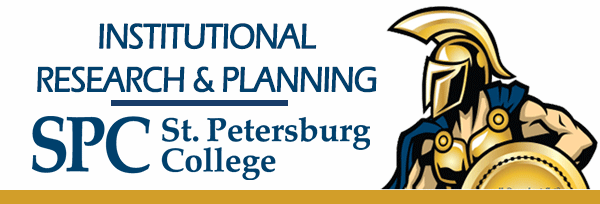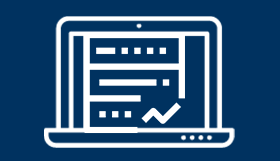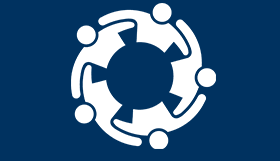
INSTITUTIONAL RESEARCH:
RESOURCES
St. Petersburg College’s Institutional Research office collects and analyzes data concerning students, programs, faculty, staff, and other areas of interest related to educational performance and policy. This office provides information used for institutional planning, policy formation, and decision-making. Below are frequently used external resources:
- Data Dictionaries & Procedures – technical documentation that includes data definitions, edit explanations that promote data quality, data submission procedures and the annual calendar for student, personnel, facilities, and admission data. Data reported on these databases are used for state and federal reporting requirements while supporting budget and management decisions at both institutional and state levels.
- Reference Files – data files and record formats to ensure colleges submit accurate data.
- Numbered Memoranda – official data request for the current year. These memos were originally emailed to all Florida Colleges System Reports Coordinators for dissemination and action.
- Reports Coordinator Resources – includes the Chart of Reports (state and federal reporting cycle to assist in institutional data report planning) and contact information for CCTCMIS team members.
- Certifications – the signed certification form notifies CCTCMIS that colleges completed the review of their data and it can be finalized.
- The Management Information Systems Advisory Taskforce (MISATFOR) – state reporting focused taskforce composed of representatives from each of the Florida Colleges. Meetings provide the opportunity to discuss and exchange ideas to develop procedures, terminology, definitions, forms and legislative changes to data and reporting requirements to satisfy state and federal reporting.
- Reports – Articulation (movement of students through the educational system), Fact Books (comparative information about the Florida College System), Full-time Equivalent (FTE) reports (actual, enrollment estimates, projections – capital outlay, enrollment).
The Division of Florida College Research and Analytics team disseminates data and information collected from the Florida’s 28 community colleges. Some areas of interest include Affordability in the Florida College System, Employment Equity Accountability Program Progress Report – Progress Report for 2013-14 through 2017-18, and other Annual Reports.
The Florida College System Budget Office contains five fiscal years of information where applicable and available. A few examples that appear on the resource site include Council of Business Affairs (COBA), Accounting Manual, Annual Financial Reports (AFR), Cost Analysis, Operating Budgets, and Salaries of Selected Positions.
The Florida Education & Training Placement Information Program (FETPIP) is an annual recurring reporting mechanism established by Florida Statutes (1008.39) to follow-up on former students and program participants. All elements of the Florida workforce development system are required to use FETPIP for any project with automated matching of administrative records for follow-up purposes. Major uses of FETPIP data include placement & accountability, strategic imperatives, career counseling and guidance information, Florida College System Performance Budgeting & Accountability, Performance Funding, etc. – electronic reports are available online for students from high school through postsecondary education.
Career & Adult Education – collaboration and partnership across both private and public sectors to improve Florida’s workforce.
Florida Department of Economic Opportunity combines economic development initiatives, workforce support and training, and community development efforts to fuel job creation around the state.
- Reemployment Assistance Service Center – provides temporary wage replacement benefits to qualified individuals who are out of work through no fault of their own.
- Business Growth and Partnerships – increased global competitiveness utilizing public and private sector expertise to attract, retain, and grow businesses and create jobs in Florida. This site contains resources that are Industry-specific, targeted to small businesses, and other programs and incentives.
- Workforce Statistics include labor market, economic, and demographic data such as current employment and wages, labor force characteristics, economic indicators, and population.
- Community Planning, Development, and Services – innovative community planning, development, and support for communities and economic incentives for businesses that create new jobs.
- Local Workforce Development Board Resources – includes program monitoring and reports, professional development and training, policy and guidance, and specific programs and resources.
The Strengthening Career & Technical Education for the 21st Century Act (Perkins V) will provide approximately $73 million annually to school districts and state colleges to expand career and technical programs. State Plan resources are available for local institutions.
Pinellas County Economic Development (PCED) works with existing businesses to encourage expansion and seeks to attract new companies with high-wage careers to Central Florida’s Gulf Coast. Through investment tools, professional courses and business counseling sessions, trade missions to open new markets, as well as local, regional and statewide partnerships, PCED fosters a pro-business climate in Pinellas County, Florida. Sections include Real Estate, Entrepreneurs, Target Industries (Select an Industry), Pinellas Community Overview, Data, and other resources.
2021-22 IPEDS
2020-21 IPEDS
2019-20 IPEDS
2018-19 IPEDS
INTERACTIVE REPORTS
Detailed data on Student Enrollment Characteristics, Degrees Awarded, Graduation and Retention Rates, and more.
COMMON DATA SETS
The Common Data Set (CDS) is a collaborative effort among postsecondary schools, colleges, universities, and publishers as represented by the College Board, Peterson's, and U.S. News & World Report to standardize data items and definitions.
FACT BOOKS
The St. Petersburg College Fact Book is intended to serve the informational needs of the College community including administration, faculty, staff, students, alumni and all other outside inquiries.
MEET THE TEAM
- Fawzi Al Nassir
- Edin Jakupovic
- Raynier Mohammed
- Joshua Hoke
- Soyoung Preisel
- Sondra Seiter
RESOURCES
Frequently used external resources & references:
- Florida College System
- Workforce
- Integrated Postsecondary Education Data System (IPEDS)






